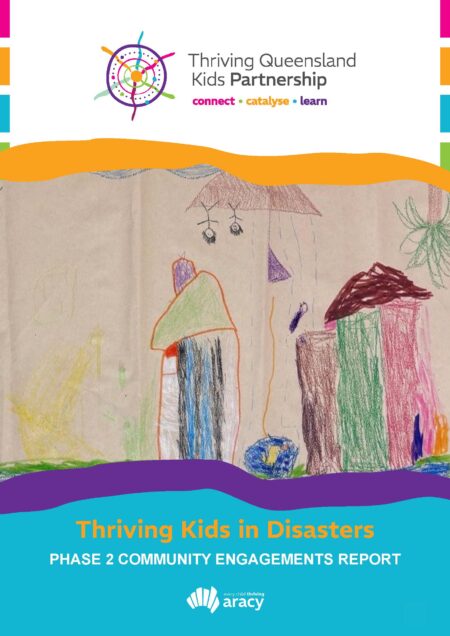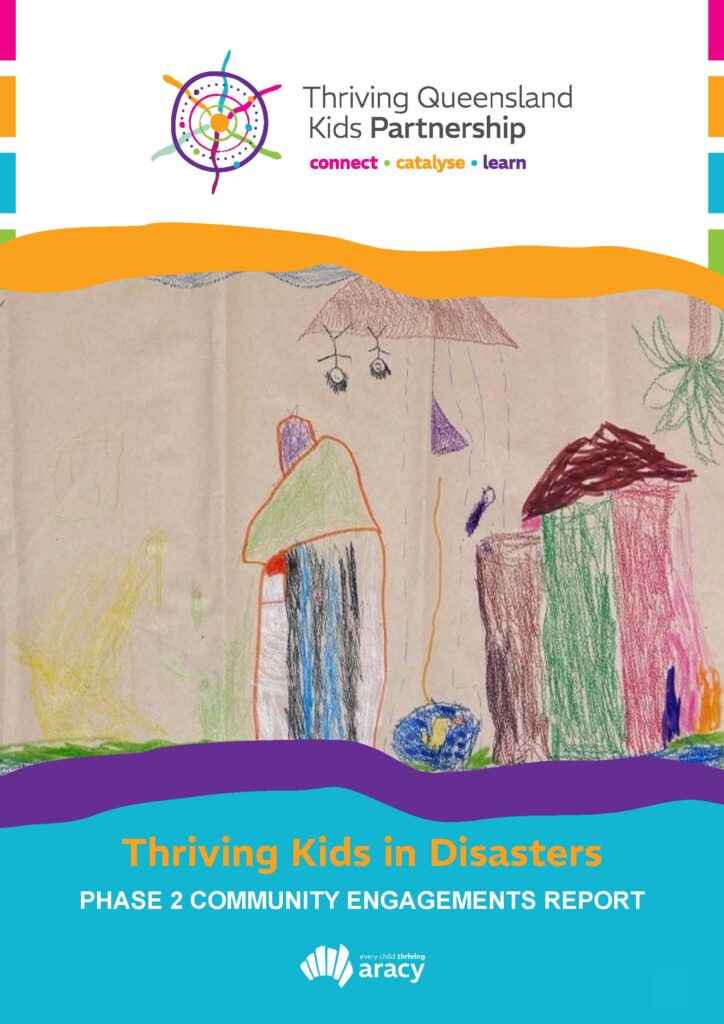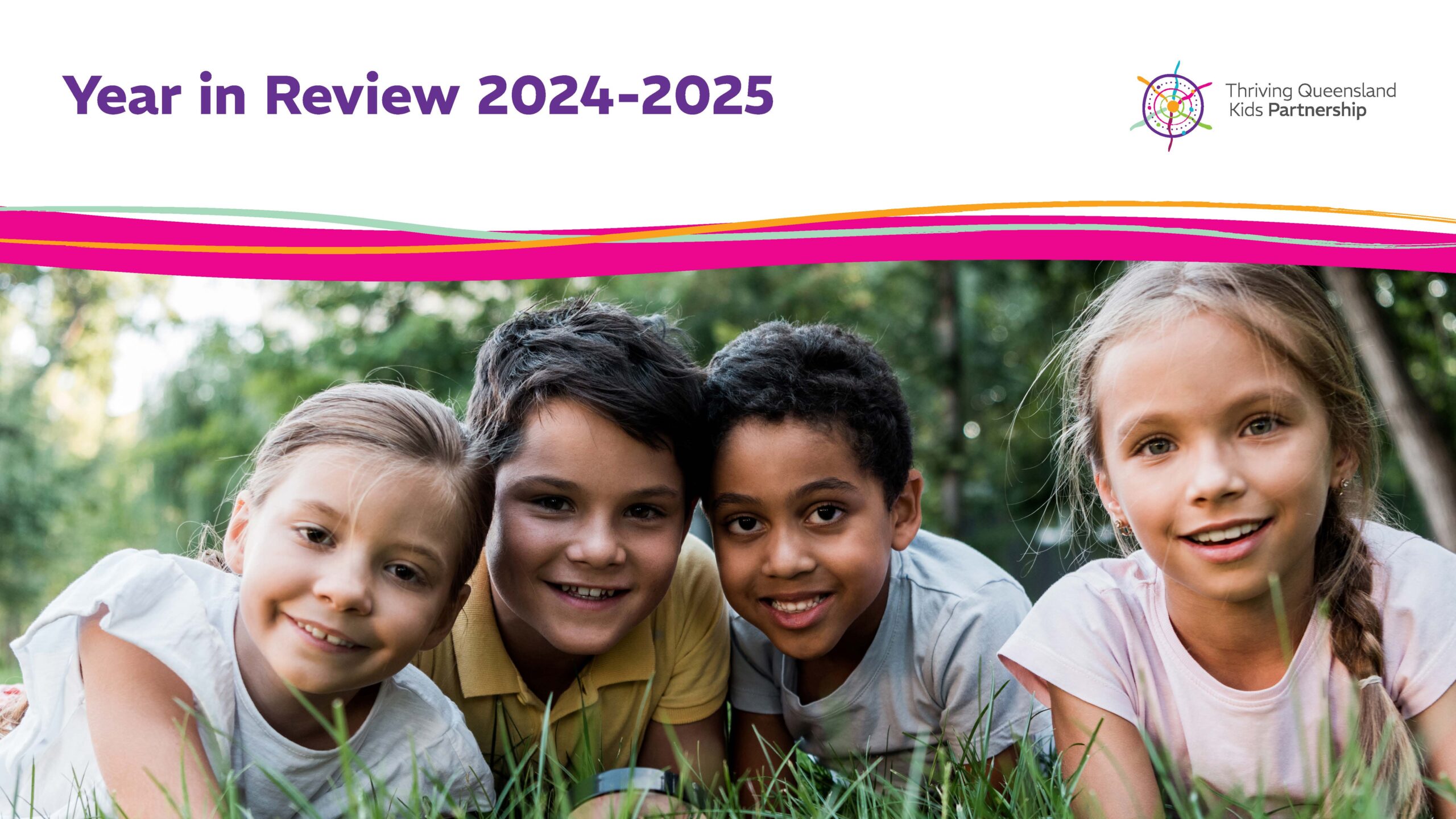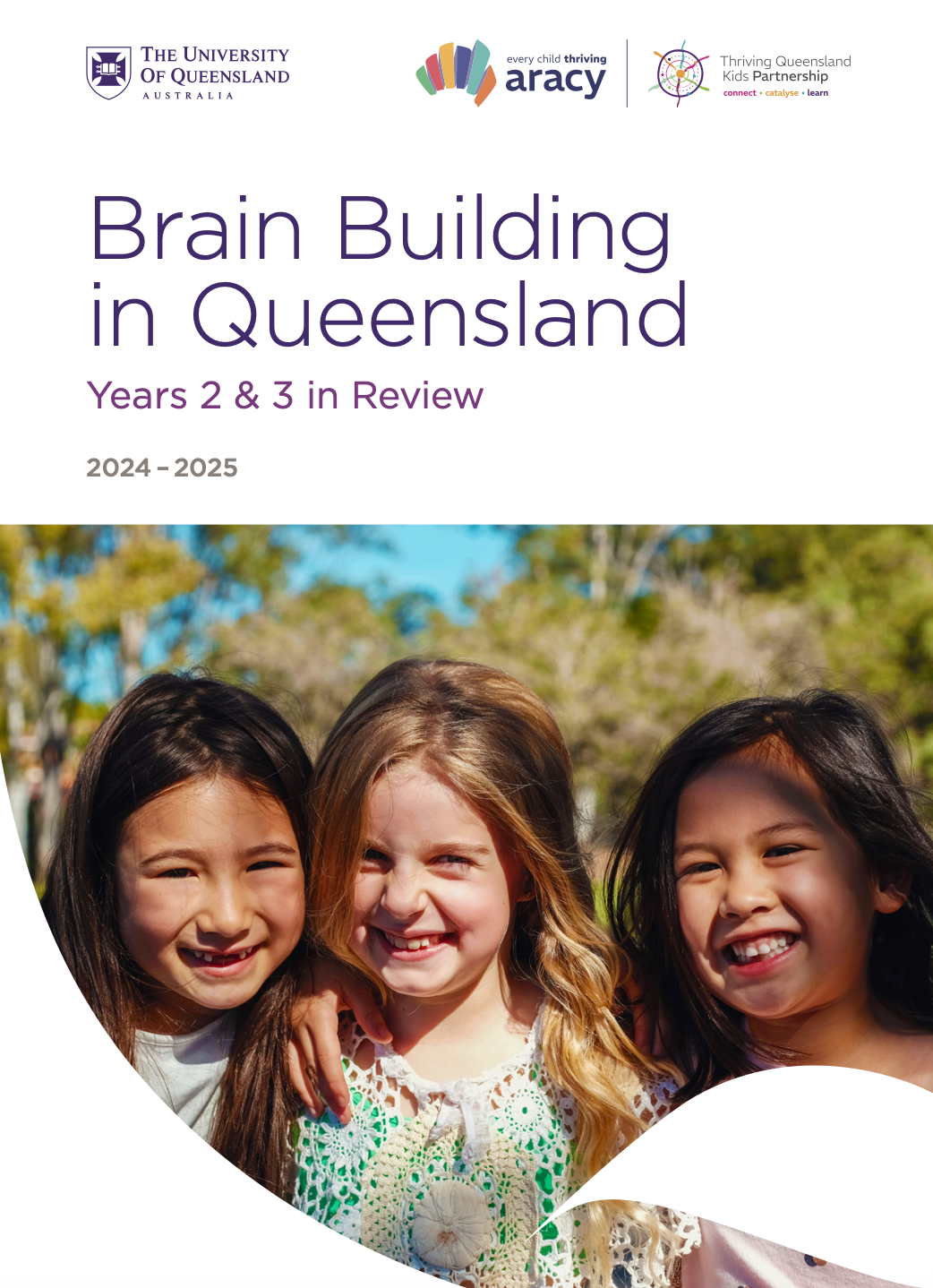Let’s listen to children in disasters
When we listen to local people – especially families and children themselves – we can develop better policies and solutions to ensure that every child in every community has what they need in disasters.
Our new Thriving Kids in Disasters Community Engagements Report shares insights drawn from engagements with kids and caregivers in three regional Queensland communities that have experienced disasters: Western Downs, Kowanyama and Cairns.
Some of the key themes included:
- Kids’ experiences can vary widely within and between communities.
- When facilities are not designed with kids in mind, they don’t meet children’s needs.
- Communicating with kids about disasters was identified as an opportunity for development.
- Wider support networks are critical when disasters cut carers off from their primary supports.
- Kids often lack control and power.
- Children and young people are already contributing to communities’ disaster preparedness and response.
Importantly, the report includes examples of how we can all better support kids to tell their stories by:
- Allowing kids to observe and try before fully engaging in the engagement activity
- Designing activities that imply no right or wrong answer
- Using informal materials rather than more formal ones
- Being open to how kids share their ideas
- Accepting and honouring all responses
- Helping kids gradually build on small ideas, rather than asking for fully-considered responses up front
- Offering up choice in thinking
- Designing activities that ask for a drawn or crafted response, which can then act as a topic for discussion to elaborate on
- Removing the barrier of written responses
- Partnering with local service systems
Download the full report to learn more and to read direct quotes from children and their families about what they need.
“We live in a container house. It’s too hot to do anything, so we go outside. It’s too hot to concentrate or do homework. I do that at school. The fires came to behind our property so Dad’s just cleared all the trees and bushes to stop fires coming. Now it’s hotter and there are no trees to sit under. He’s making two of us girls a separate bedroom in a caravan though because there’s nine of us. Too many in the container.” – Primary school student, Western Downs
If you are a local community leader, policy maker, work in a social service organisation or government, you will find here useful approaches to embedding young voices and ideas in decision making.



